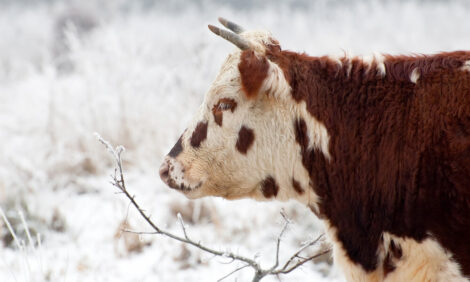



Minister Requests Urgent EU Meeting
IRELAND - The IFA President Padraig Walshe said the Minister for Agriculture Mary Coughlan has no option but to insist that the EU Commission impose an immediate ban on Brazilian beef imports. Mr. Walshe has requested an urgent meeting with Minister Coughlan to discuss the very disturbing contents of the latest FVO report on the failure of Brazil to meet EU standards and food safety controls.Padraig Walshe said the FVO had again found all of the shortcomings and deficiencies previously identified by the IFA and the Farmers’ Journal in Brazil of unreliable cattle traceability, lack of proper movement and border controls, ineffective FMD controls and unsatisfactory health controls.
The IFA President said Minister Coughlan now has evidence that Brazil still fails to meet EU requirements. The Minister must insist that EU Health & Consumer Protection Commissioner Markos Kyprianou delivers on his commitment to impose a ban on Brazilian beef in view of the fact serious deficiencies previously identified by the FVO have not been corrected.
Padraig Walshe said to retain credibility the EU, must act immediately on the latest revelations from the FVO on the failure of Brazil to meet EU standards.
The IFA President said the FVO report had again highlighted a litany of serious problems with the standards in Brazil. The FVO concluded that as aspects of the identification system were incorrectly implemented, this called into question the reliability of the 40-day and 90-day residency policy, which the Commission relies on to implement regionalisation. The FVO found more animals registered in the SISBOV database than were actually present on some farms.
They also found that the quality of ear tags was inadequate. The individual identification was also illegible and a high percentage of ear tags were lost or missing.
The report states ‘that the FVO found that animals were being moved from FMD restricted areas in a non-EU approved state to an EU approved state and sent for slaughter without respecting the 90 day residency’. This is a clear FMD risk.
‘In one meat plant, an animal was declared non-EU eligible but its meat formed part of a consignment destined for the EU’, again exposing Europe to unnecessary FMD risks.
The FVO report also found serious shortcomings in the vaccination procedures. The report states that ‘no routine controls were being carried out by the competent authority on holdings to ensure proper vaccination in some states’. The vaccination programme as recommended was not been followed and thus the level of herd immunity might not be sufficient to protect against FMD. The FVO observed that the FMD virus is still circulating in parts of Mato Gross do Sul.
The FVO concluded that the absence of a programme to monitor the efficiency of vaccination in 2007 jeopardises the future certification of beef.
TheCattleSite News Desk


